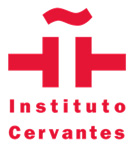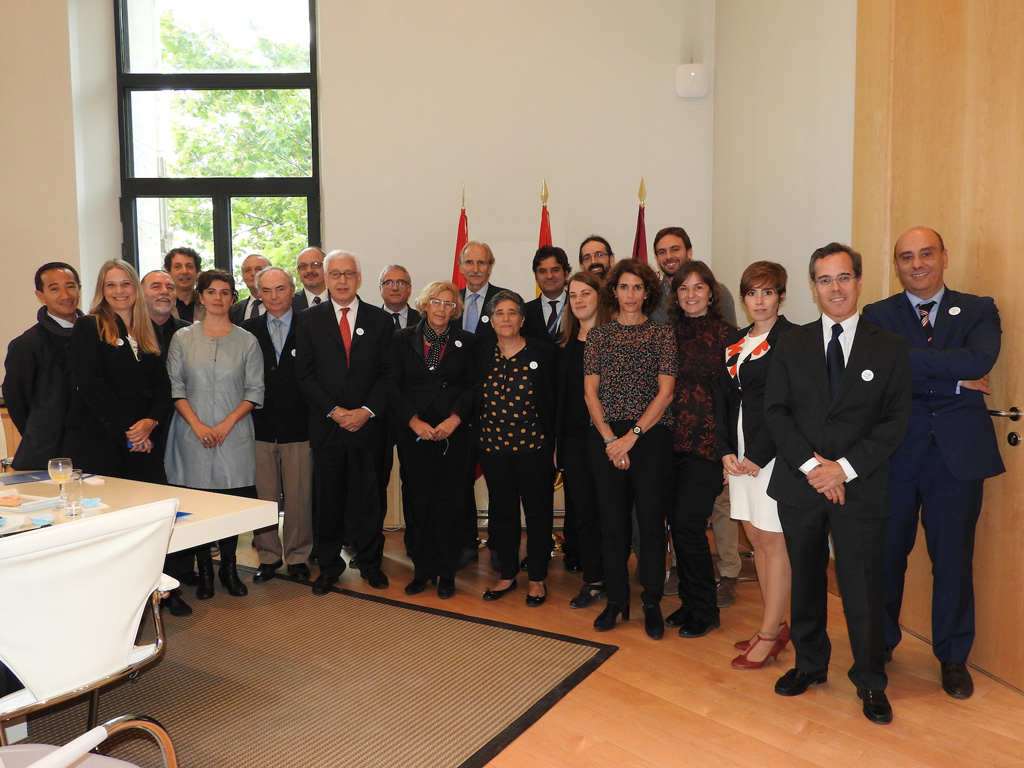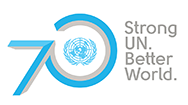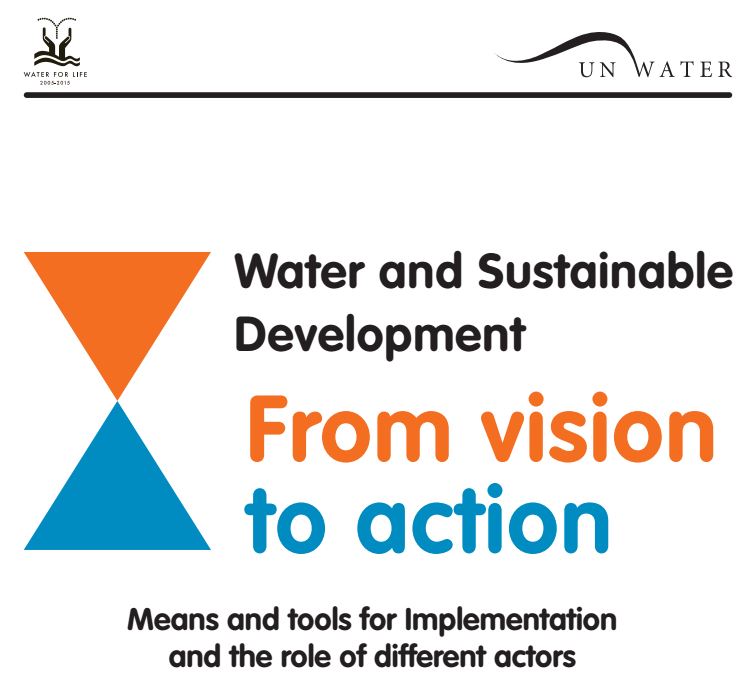- ON THE DECADE
- THE DECADE'S CAMPAIGN
- REPORTING ON PROGRESS
- THE DECADE'S PROGRAMMES
- FOCUS AREAS
-
- Access to sanitation
- Financing water
- Gender and water
- Human right to water
- Integrated Water Resources Management
- Transboundary waters
- Water and cities
- Water and energy
- Water and food security
- Water and sustainable development
- Water and the green economy
- Water cooperation
- Water quality
- Water scarcity
- FOCUS REGIONS
- RESOURCES FOR
- UN e-RESOURCES
UNW-DPAC Media Programme
What is the Media Programme?
Media activities and interaction with media are an essential component of the UN-Water Decade Programme on Advocacy and Communication (UNW-DPAC). Media professionals are an important actor, supporting awareness and improved understanding of water issues. UNW-DPAC seeks to engage media in water activities together with communities, businesses, governments and other stakeholders.
Empowering and supporting the capacities of media professionals allows the media to improve reporting on water and sanitation issues. UNW-DPAC implements media workshops and maintains a strong communication network to allow media professionals to interact and support each other.
Interacting and debating with the media is necessary to understand their information needs and gaps but also to promote a critical dialogue involving the media and different types of stakeholders in order to ensure a balanced coverage of water and sanitation issues.
The media also need to identify relevant and reliable information to report on water and sanitation issues. UNW-DPAC supports the accessibility to reliable information on water and sanitation and ensures improved reporting on water issues by providing communication channels through a variety of UN publications and media sources, such as the Decade’s Weekly, a summary of UN water related news and events and a UN Documentation Centre on Water and Sanitation.
UNW-DPAC also provides communication and media support to UN-Water, which includes briefing the media in relation to UN-Water events and activities, organising press conferences and preparing press releases.
Empowering the Media: Journalist Training Programme
The UNW-DPAC journalist training programme provides a platform for discussing the broad range of issues, actions and to improve journalists’ understanding and communication skills regarding water and sanitation issues. The ultimate goal is to expand and improve media coverage of water and sanitation related issues, including human rights, climate change, and the green economy among others, through a network of journalists with enhanced commitment, perspective, technical knowledge and access to information that can report effectively on one of the most urgent challenges of our time.
The training programme includes training workshops and special activities for journalists on water and sanitation related issues. It also recognises those journalists who make public awareness of water and sanitation and their related development issues a priority. Themed workshops for professional journalists are held regularly throughout the year covering subjects related to water and sanitation.
Zaragoza Conference: Media and Communications Session
Place: Zaragoza, Spain
Achieving the water-related Sustainable Development Goal is possible. It's within range of available resources, human and social capacities and technologies available. It is feasible and can be achieved by improving water policy, institutions and partnerships, mobilizing and developing individual and social capacities, speeding the diffusion and adaptation of existing and new technologies and designing and implementing the required economic and financial instruments. None of these challenges, however, involve only the water community or can be dealt with in the water policy arena in isolation. A systematic effort is required in order to put in place the means required to make it happen.
The UN-Water International Zaragoza Conference 2015 was themed Water and Sustainable Development, in order to kick-start the theme of World Water Day right at the top of the year. The subtitle was From Vision to Action – moving from discussion to implementation. With a view to this, representatives from government, academia, business and civil society were invited to discuss water governance, financing, risks and technology.
The media and communications session invited representatives of the UN and further afield to discuss communications successes and failures. Those aimed at the developed world and the developing world. The challenges of talking to each group, and how journalists can raise awareness to affect behaviour change as well as to push the hand of government to intervene. By inviting the journalists and top UN figures to speak in a strictly off the record environment, we hoped to foster frank discussion between media professionals and UN communicators. Certainly a few sparks flew, but the session also represented an opportunity for the journalists to pin down top operatives from the UN and further afield for private interviews.
>> See the session's report
Journalists' groups
Maintaining a dedicated group of trusted journalists in Asia and Africa allows us to disseminate breakthroughs, the latest findings and reports, as well as success stories (such as award winning water projects) quickly. We know from our close ties with our networks that we will not only find receptive and expert ears, but also that these journalists are conscientious and engaged with the water issues that often strike close to their homes. Via google groups, Facebook, email and face to face contact where possible these strong relationships mean that we can respond quickly to breaking news and know that we can rapidly contact journalists who share our passion for water.
Water for Life Voices Exhibit, UNHQ, NYC
Place: UNHQ in New York, USA
Drawing on a Decade of powerful successes and hard lessons learned, we drew the human stories from the Decade, and presented them at UNHQ in New York. One of the challenges was finding a way to present a Decade's worth of material, in myriad areas of water and development, into just a few panels. Our solution was to adopt an iceberg approach.
The photographs and quotes from the beneficiaries were the tip, but by using a mobile device, visitors could 'go deeper' into the water issues, by accessing ever more technical layers of detail via QR codes. These layers included case studies of the interventions detailed in the image the visitor is interacting with, to thematic studies (eg. Women and Water; Water Quality), to comprehensive reports on issues such as climate change, videos and more.
Like water, our exhibit swelled to fill the available space. The exhibit also became the backdrop for the winners of the Water for Life awards to accept their awards – providing for attending TV crews an instant visual history of the Water Decade as the final awards of the MDG period were handed out.
More information:
>> Water for Life Voices
>> 'Water for Life' UN-Water Best Practices Award
Journalist workshop at World Water Day 2014 on "Water and Energy"
Place: Tokyo, Japan
This workshop, organized on the occasion of World Water Day, gathered 25 journalists from 11 different Asian countries, including Bangladesh, Cambodia, China, India, Korea, Pakistan, The Philippines, Sri Lanka, Thailand, Uzbekistan and Vietnam. Journalists expected to share their reporting experiences with other colleagues and learn from each other. Issues such as hydropower, the water-energy nexus and accessing accurate sources of information were part of their learning expectances.
The workshop, which included a visit to the city of Kumamoto on the 23rd March for some selected journalist, was organized around a training and panel session on the 21st and a series of editorial sessions on the 22nd. During the training and panel sessions, journalists were especially concerned with the disconnection between both sectors (water and energy) and its consequences, the monetization of water services, the dams debate, water trading, appropriate technologies and pitches for convincing governments.
After the workshop, journalists evaluated the activities ranking high the selection of experts participating; the working group sessions, which allowed them to share their views and argue on what to report on as well as experiencing cross-cultural and cross-country interactions; the opportunities provided for interviewing high-profile experts and the documents and information provided. As a result of the workshop, the participating journalists have created a collaborative network where they will continue exchanging their experiences and ideas for continuing reporting on water and energy issues.
>> More information
Journalist workshops at Deutsche Welle Global Media Forum
The Deutsche Welle Global Media Forum (DWGMF), held in Bonn, Germany, provides an interdisciplinary platform for dialogue by bringing together experts from politics, business, culture, academia, civil society and the media. UNW-DPAC has organized various journalist workshops at DWGMF, including the following:
• Journalist training programme on "Water and Sanitation as a Human Right"Date: 19-21 June 2011
UNW-DPAC jointly organized with the United Nations Human Settlements Programme (UN-Habitat), the UN-Water Decade Programme on Capacity Development (UNW-DPC) and the Water Supply and Sanitation Collaborative Council (WSSCC), different activities on Water and Sanitation as a Human Right addressed to the media. These included a journalist training programme composed of three training modules aimed at:
- Providing an opportunity for participants to obtain first hand information on the topic; sharing and reflecting on their experiences in reporting on human right stories and on water and sanitation as a human right; and supporting participants to improve their skills for using attractive journalistic formats for the coverage of Human Right to Water and Sanitation topics.
- Offering first hand information to participants about the Conference; facilitating them to cover relevant issues and topics of the Conference program with a strong focus on "Water and sanitation as human right"; and producing attractive and relevant reports efficiently during the conference.
- Establishing a network and reference group amongst journalists and experts for exchanging news stories and ideas.
>> More information
>> Conclusions and recommendations
Date: 20-22 June 2010
This workshop, moderated by a series of UN and media professionals, tackled the issue of water and climate change by providing some basic concepts and addressing some questions such as: What is climate change? What is adaption to climate change? What is water adaptation to climate change? Where is the water in the climate change debate? After creating a platform for debate, the workshop provided insight from industry officials and advice from experienced media experts. The result of the workshop was a network of journalists initiated into water and climate change issues, as well as the body of work they produced.
>> Programme agenda
>> Speakers
Information and Communication Workshop on Water and Climate Change
Place: Punta Cana, Dominican Republic
This workshop aimed to serve as a forum for debate on water and climate change issues between experts and journalists from the Latin America and Caribbean region. Themes covered included: the nature of the water-related impacts of climate change, how to improve climate change adaptation, the importance of water in the COP 15, tools for improving communication on water and climate change, and lessons drawn from stories of good practices on information and communication. The workshop was held in cooperation with the Dominican Association of the United Nations (UNA-DR) and the Global Foundation for Democracy and Development (GFDD).
Journalist workshop at the 5th World Water Forum
Place: Istanbul, Turkey
This workshop was designed to provide experienced international journalists with a unique opportunity for learning, working and networking on the links between health, sanitation and water in low-income countries.. The workshop made the link to poverty and development, human rights, environment, food, peace building, migration, governance and other issues being addressed simultaneously at the 5th World Water Forum. A total of 35 international journalists representing print, television, radio and web, from mainstream and specialized media from Africa, Asia, Europe, and from North and South America participated. Partners for the organization of this workshop included the Water Supply and Sanitation Collaborative Council (WSSCC), the Media 21 Global Journalism Network, PATH, Water Advocates and the World Water Council (WWC).
Exchange and debate with the media
Debate session on "Water in a Changing World of Growth Opportunities"
Place: Deutsche Welle Global Media Forum, Bonn, Germany
This session, organized by UNW-DPAC in collaboration with the World Bank, the Women for Water Partnership and the United Nations Convention to combat Desertification, aimed at demonstrating that innovative policy, technology and business solutions exist today to tackle water problems and offer new development opportunities. The session discussed the challenges and opportunities in water management, new approaches to deal with them, the main challenges and opportunities in water scarce regions, and the role of different actors.
>> More information
Interview session on "Water for Life. Water and Sanitation as a Human Right"
Place: Deutsche Welle Global Media Forum, Bonn, Germany
During this interview session, which included the participation of the United Nations Special Rapporteur on the Human Right to Safe Drinking Water and Sanitation, the panel and the audience discussed the UN resolution on the human right to water and sanitation, the sanitation issue, and the country example of South Africa.
>> Video recording of session
Media Day at the Conference "Sustainable Water Management in Cities: Engaging stakeholders for effective change and action"
Place: Zaragoza, Spain
This media day discussed the role of the media in water policy changes in cities and provided an opportunity to identify what the media need to know about effective change in urban water management, the best means of providing them with information and how to promote opportunities to engage them in changes in urban water management. These issues generate a debate amongst the participants on the role of journalism in society, both as a source of information but also for activism, on the capacity for journalism to change attitudes and behaviour, and on the role of the media in promoting good water governance and transparency.
>> More information on the Media Day
>> Final report from the conference, including a chapter on the Media Day
Panel discussion session "Water for Life: Where is Water in the Climate Change Debate?"
Place: Deutsche Welle Global Media Forum, Bonn, Germany
This panel session discussed the role of the media in communicating the urgency of climate change adaptation and water linkages. The session brought together experienced journalists and experts from the United Nations as well as from stakeholder organizations to examine how communication can influence issues surrounding water and climate change. They discussed the best way to convey the urgency of action in the communication of climate change adaptation, and what is central about water and sustainable development and affects mainly developing countries and the poor.
>> More information
>> Contents and speakers
Media consultation on Water and Climate Change
Place: Zaragoza, Spain
This media consultation meeting focused on the Role of the Information and Communication Community in Enabling Adaptation Strategies to Climate Change in Water Resources Management. The meeting intended to raise awareness about the connection between water and climate change, explore the role of communicators in shaping public opinion and identify best practices and information-exchange methods, among others. The meeting provided a wide range of advocacy and outreach materials targeted at different audiences and implemented various communication activities to sustain global attention and political momentum in favour of the water and sanitation agenda at all levels.
>> Conclusions and recommendations from the consultation
Facilitating access to reliable information for media
UNW-DPAC produces a series of media briefs intended to introduce the media to thematic issues and to provide them with reliable information resources. The media briefs often provide statistics in support of research, questions to encourage debate and discussion and a summary of the key issues surrounding the topic.
The Human Right to Water and Sanitation
>> The Human Right to Water and Sanitation Media Brief
This brief gives a summary of the issues relating to the Human Right to Water and Sanitation and provides some statistics in reference to it. The brief provides details on the UN commitment, goes on to pose and answer the questions why is it important and what does it mean, and describes the different components of the right to water (sufficient, safe, acceptable, physically accessible and affordable). It also provides some examples illustrating how the human right to water and sanitation is being implemented in practice. The brief summarises with a list of common misconceptions and links to the various sources referenced.
Water and Cities
>> Water and cities Media Brief
What are the main challenges regarding water issues in cities? Where is the situation most pressing? Who is most affected? When are changes being realized? This brief tries to respond to these and other questions you may have.
>> Water and urbanisation Media Brief
This brief looks at the main challenges of water relating to urbanization; it then discusses some possible solutions and provides different case studies which offer an opportunity to discuss main challenges and activities at city level.
Water Cooperation
>> Water cooperation Media Brief
This brief provides information on water cooperation: why is this theme important? What are the main challenges and benefits? Which tools can be used to promote water cooperation?
>> UNW-DPAC home
>> In the news
>> What we do
>> Where we are
>> Visual identity
>> Events Agenda
>> Internship programme
>> Media Programme
>> UN Water Dialogue Series in Casa Solans
>> 'Water for Life' UN-Water Best Practices Award
>> 'Water for Life' Voices Exhibit and Campaign
>> Zaragoza Conferences
>> World Conference Series
>> Bimonthly Publications Review
>> Information briefs
>> Readers
>> Special reports
>> Water facts and figures
>> Thematic video series
>> Conference video series
>> UNW-DPAC external evaluation of 2011-2015 workplan [ - 209 KB]
- 209 KB]
>> Biennial Report 2014-2015 [ - 1.18 MB]
- 1.18 MB]
>> Biennial Report 2012-2013 [ - 1.18 MB]
- 1.18 MB]
>> Biennial Report 2010-2011 [ - 566 KB]
- 566 KB]
>> Annual Report 2009
[ - 1.05 MB]
- 1.05 MB]
Copyright | Terms of use | Privacy notice | Site Index | Fraud alert | Help












